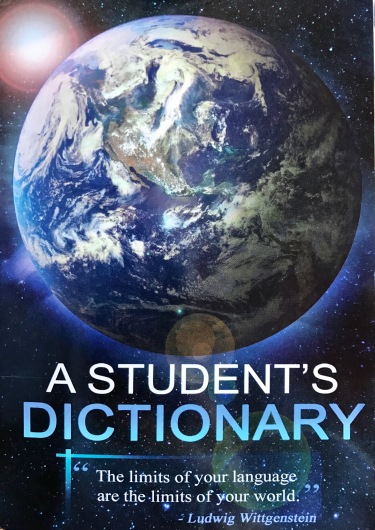I picked up my youngest son at school the other day. After getting in the car, instead of immediately buckling up, he started searching his book bag for something. I sat patiently and waited util he was ready to go. He found what he was looking for and got buckled up. I started driving toward his favorite restaurant (Applebee’s), where I’d promised to take him the day before. As we were driving, I noticed in the rear view mirror he was reading through a book. Great, I thought. We stopped at a traffic light and he asked me to turn and look at a map and a sign language chart in the book. He had the air of a kid who knew his dad liked books and so he wanted to show this one off. I was happy to oblige.
After parking the car, my son quickly unbuckled and started showing me sections of the book. At first I thought the book might have been some type of encyclopedia but I still wasn’t sure yet. After about my third question, my son finally handed me the book. The cover of the book had me immediately.

There in vivid color were the starry heavens, mother earth, an a profound quote by one of the 20th century’s greatest philosophers. I have to say, the quote of Ludwig Wittgenstein really sealed the deal. It’s one of my favorite quotes, and for a dictionary meant for 3rd graders having this quote on the cover was just the type intellectual presumptiveness I find very encouraging. A quote like that ignites reflection before you even open the book.
This Dictionary was given to my son as part of The Dictionary Project (DP). The DP’s goal is to “assist all students in becoming good writers, active readers, creative thinkers, and resourceful learners by providing them with their own personal dictionary.” There are many great causes in life to dedicate yourself to, but this has to rank as one of the most important. So much of the personal and professional success that young people ultimately have in life stems directly from the quality of their education at the primary school level.
In the opening pages of this dictionary there’s a short, concise essay that cuts to the central reason why students (at school and throughout life) need to use and refer to a dictionary regularly:
To succeed in school and in life, you must be able to use the English language effectively. You simply cannot learn all that you need to know without being able to understand the words you hear and read, and without knowing how to use the right words to convey your thoughts and ideas clearly.
For someone who admires intelligence, creativity, and the artful use of language and the power that words can carry, it was a nice reminder that there are so many people and groups—teachers, parents, and private Foundations—constantly striving, in big and little ways, to improve the lives of our most precious resource, our children.
Wonderful! It sounds like an excellent dictionary stemming from a profoundly needed project… I’m thrilled for your son, and I’m sure he’ll put that dictionary to very good use!
LikeLiked by 1 person
You’re so kind Jonathan. Thank you. You know it’s the little things in life that make a big difference sometimes.
LikeLiked by 1 person
You’re certainly welcome and you’re right: Little things in life can serve to help accomplish the greater.
LikeLiked by 1 person